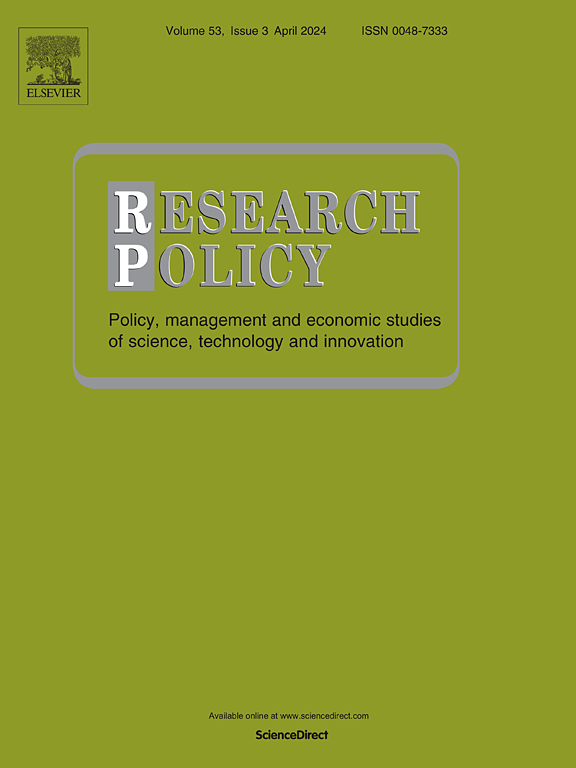Write access provisioning and organizational ownership in open source software projects: Exploring the impact on project novelty and survival
IF 8
1区 管理学
Q1 MANAGEMENT
引用次数: 0
Abstract
Non-hierarchical organizational structures have gained popularity as a means to leverage the crowd's innovative potential. However, balancing the generation of new ideas with the long-term sustainability of innovation efforts remains a significant challenge, especially in the context of open-source software (OSS) projects. In the absence of formal authority and contracts, OSS projects rely on governance systems wherein the rights to maintain the project's source code are restricted to a small group of contributors. We argue that restricting write access to the source code for a core group is essential for effectively managing innovation in OSS projects. Specifically, we propose that the proportion of contributors with write access to the source code influences two key outcomes: project novelty and survival. Additionally, given the widespread adoption of OSS development practices by organizations, we examine how organizational ownership influences the relationship between write access provisioning and project outcomes. Analyzing a matched sample of 5762 OSS projects hosted on GitHub, we find that a higher proportion of contributors with write access enhances the project's novelty but reduces the project's survival. This relationship is further influenced by whether or not the project is organization-owned. We attribute these findings to the distinct roles played by contributors: those with write access to the project drive innovation by selecting and integrating new ideas, while those without write access to the project are crucial for ensuring the project's reliability and long-term survival.
开源软件项目中的写入访问供应和组织所有权:探索对项目新颖性和生存的影响
作为一种利用群体创新潜力的手段,非等级组织结构已经越来越受欢迎。然而,平衡新想法的产生与创新努力的长期可持续性仍然是一个重大挑战,特别是在开源软件(OSS)项目的背景下。在缺乏正式权威和合同的情况下,OSS项目依赖于治理系统,其中维护项目源代码的权利仅限于一小群贡献者。我们认为限制对核心组源代码的写访问对于有效地管理OSS项目中的创新是必不可少的。具体来说,我们认为对源代码具有写访问权的贡献者的比例影响两个关键结果:项目的新颖性和生存。另外,考虑到组织广泛采用OSS开发实践,我们检查组织所有权如何影响写访问供应和项目结果之间的关系。通过对GitHub上托管的5762个OSS项目的匹配样本进行分析,我们发现,拥有写访问权限的贡献者比例越高,项目的新颖性就越高,但项目的存续性就越低。这种关系进一步受到项目是否为组织所有的影响。我们将这些发现归因于贡献者所扮演的不同角色:那些对项目有写权限的人通过选择和整合新想法来推动创新,而那些对项目没有写权限的人对于确保项目的可靠性和长期生存至关重要。
本文章由计算机程序翻译,如有差异,请以英文原文为准。
求助全文
约1分钟内获得全文
求助全文
来源期刊

Research Policy
MANAGEMENT-
CiteScore
12.80
自引率
6.90%
发文量
182
期刊介绍:
Research Policy (RP) articles explore the interaction between innovation, technology, or research, and economic, social, political, and organizational processes, both empirically and theoretically. All RP papers are expected to provide insights with implications for policy or management.
Research Policy (RP) is a multidisciplinary journal focused on analyzing, understanding, and effectively addressing the challenges posed by innovation, technology, R&D, and science. This includes activities related to knowledge creation, diffusion, acquisition, and exploitation in the form of new or improved products, processes, or services, across economic, policy, management, organizational, and environmental dimensions.
 求助内容:
求助内容: 应助结果提醒方式:
应助结果提醒方式:


